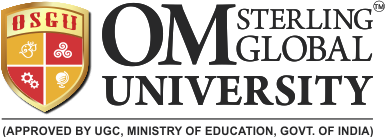Medical Laboratory Technology is a critical field that underpins the healthcare system. This discipline involves the analysis of body fluids, tissues, and other substances to diagnose diseases, monitor treatments, and ensure overall patient health. Professionals in this field, known as Medical Laboratory Technologists (MLTs), use sophisticated laboratory equipment and techniques to conduct tests that provide essential data for medical decisions.
Key Responsibilities of Medical Laboratory Technologists
Medical laboratory and molecular diagnostic technology perform a wide range of tasks, including but not limited to:
Analyzing Blood Samples: Conducting blood tests to identify blood types, count cells, and detect abnormalities.
Microbiological Tests: Identifying bacteria, viruses, and other pathogens to diagnose infections.
Chemical Analysis: Measuring chemical components in body fluids to detect diseases such as diabetes.
Molecular Diagnostics: Using DNA and RNA analysis to diagnose genetic disorders and infections.
Quality Control: Ensuring the accuracy and reliability of test results through meticulous quality control procedures.
Educational Pathways in Medical Laboratory Technology
To pursue a career in Medical Laboratory Technology, individuals typically need to complete an accredited program, which can range from a two-year associate degree to a four-year bachelor's degree. Courses often cover subjects such as microbiology, hematology, clinical chemistry, immunology, and molecular diagnostics. Advanced certifications and specializations can further enhance career prospects.
Career Opportunities in Medical Laboratories
The field of Medical Laboratory Technology offers diverse career opportunities, including:
Clinical Laboratory Technologist: Working in hospitals, clinics, and private laboratories to perform routine and specialized tests.
Research Scientist: Conducting research in academic institutions or pharmaceutical companies to develop new diagnostic methods and treatments.
Molecular Diagnostic Technologist: Specializing in genetic and molecular testing to diagnose diseases at a molecular level.
Pathologist Assistant: Assisting pathologists in examining tissues and conducting autopsies.
Laboratory Manager: Overseeing laboratory operations, managing staff, and ensuring compliance with regulatory standards.
The Future of Medical Laboratory Technology
Advancements in technology and scientific research continually shape the future of Medical Laboratory Technology. Emerging areas such as personalized medicine, genomics, and digital pathology are expanding the scope and impact of this field. Medical Laboratory Technologists must stay updated with these developments through continuous education and professional development.
Read more: Step-by-Step Guide to Medical Lab Technology
Pursuing a course in Medical Laboratory and Molecular Diagnostic Technology from Om Sterling Global University (OSGU) opens up several career pathways. Graduates can explore roles such as:
Clinical Laboratory Technologist: Conducting a variety of diagnostic tests in medical laboratories.
Molecular Diagnostic Specialist: Focusing on advanced techniques in genetic and molecular testing.
Biomedical Scientist: Engaging in research and development in the biomedical field.
Laboratory Supervisor: Managing laboratory operations and ensuring the quality of test results.
Healthcare Consultant: Advising healthcare organizations on laboratory practices and technologies.
Conclusion
Medical Laboratory Technology is a dynamic and essential field within healthcare. With a solid educational foundation and a commitment to ongoing learning, professionals in this field can enjoy a rewarding career with numerous opportunities for specialization and advancement. Whether you are analyzing samples in a clinical setting, conducting groundbreaking research, or managing laboratory operations, the role of a Medical Laboratory Technologist is vital to the health and well-being of patients.

